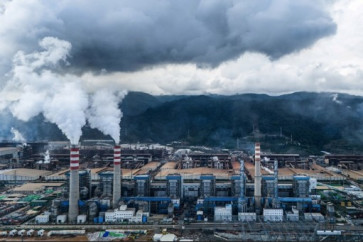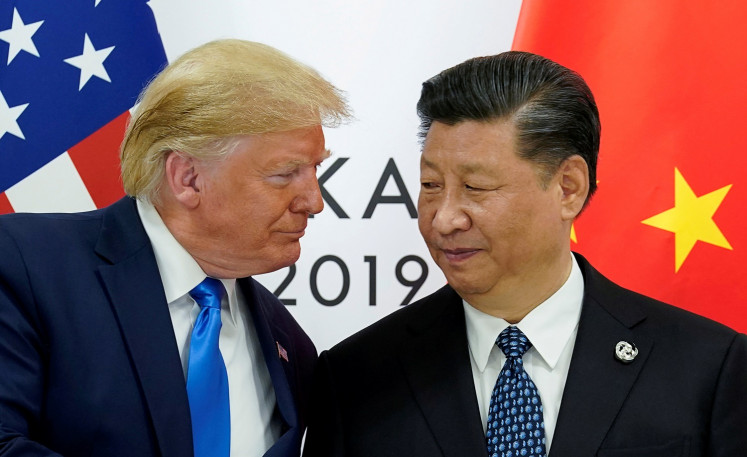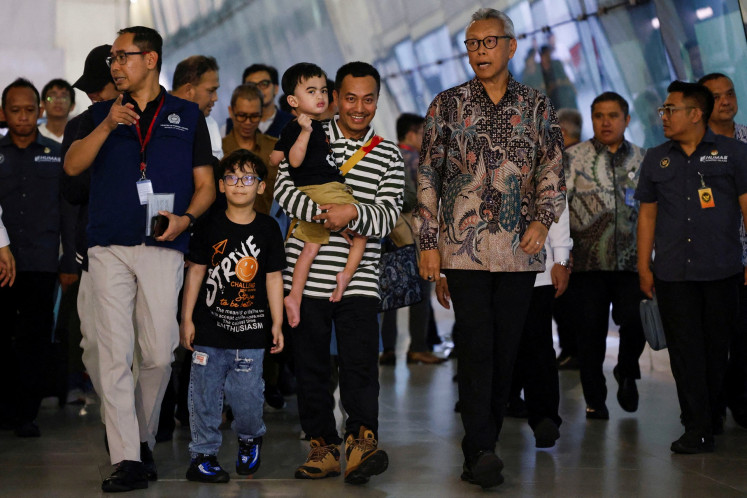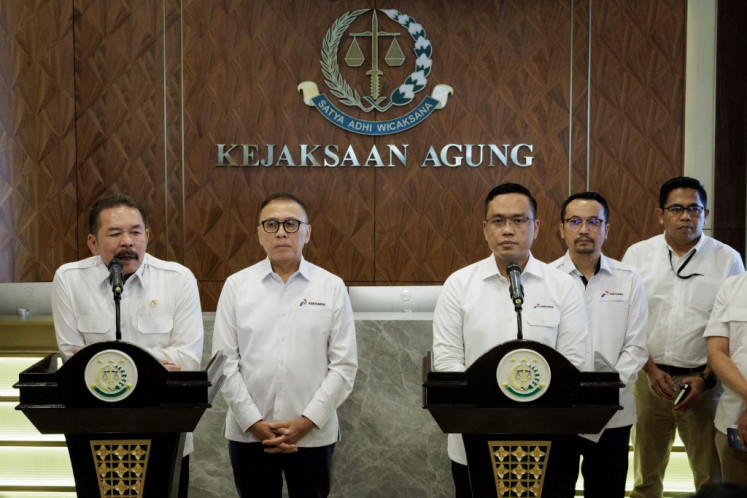Popular Reads
Top Results
Can't find what you're looking for?
View all search resultsPopular Reads
Top Results
Can't find what you're looking for?
View all search resultsAdaro pins hopes on power plant business
Coal miner Adaro Energy is looking to boost its non-coal business by planning work on three power-plant development projects with a total investment estimated to reach US$6 billion
Change text size
Gift Premium Articles
to Anyone

C
oal miner Adaro Energy is looking to boost its non-coal business by planning work on three power-plant development projects with a total investment estimated to reach US$6 billion.
Once its power plant business is fully operational, the company expects it to contribute two-thirds to the company's total revenue.
Adaro president director Garibaldi Thohir said the company was looking to reduce its dependence on coal mining amid low commodity prices. The miner was also betting on the power plant projects to generate diversified revenue, aside from its logistics business which serves Adaro's mining activities.
'Currently coal mining contributes around 60 percent of our revenue,' he said.
'In the near future, we want to see coal mining, logistics and the power producing business contribute around one-third each, particularly after our power plants are fully operational by 2018.'
Garibaldi said the company's venture into the power plant business was a response to the government's massive power infrastructure project in which President Joko 'Jokowi' Widodo's administration plans to have an additional 35,000 megawatt (MW) electricity supply within five years.
Adaro is currently working on three power plant projects, two of which ' with total investment expected to hit around $4.55 billion ' are expected to have financial closure in October before entering the construction phase.
The two projects are a 2x1000 MW power plant in Batang, Central Java, and a 2x100 MW mine-mouth power plant in Tabalong, South Kalimantan.
Adaro is working on the Batang power plant through its subsidiary Adaro Power, which has a 34 percent stake in Bhimasena Power Indonesia (BPI). BPI, which is a joint venture involving Japan-based Electric Power Development and ITOCHU Corporation, will build the power plant.
Cameron Tough, head of investor relations with Adaro Energy, said investment for the Batang plant was estimated to hit around $4 billion, 80 percent of which would be funded by non-recourse project financing expected to come from the Japan Bank for International Cooperation.
Meanwhile, the Tabalong power plant will be built by Tanjung Power Indonesia (TPI), a joint venture with EWP Indonesia, a subsidiary directly owned by Korea East-West Power. Adaro Power has a 65 percent stake in the joint venture, while EWP holds the remainder.
The power plant will cost the consortium around $550 million of investment, which will also be funded by non-recourse project financing.
TPI signed late last year a power purchase agreement with state electricity company PLN, which will buy the electricity generated from the power plant.
Tough said that the company expected to start construction of the two power plants soon after the financial closure, with the Batang plant designed to conclude construction in four years and Tabalong in around 33 months.
Adaro has also partnered with China Shenhua Overseas and Development to develop a 2x300 MW mine-mouth coal-fired power plant at its coal mine in East Kalimantan, having signed an agreement back in November.
Garibaldi said that the company was still studying the plan, potential financing and the ownership portion for the project. Cameron said the company had yet to have exact figures on how much the project would cost the company, but added that coal-fired power plants usually cost around $2 million per MW, meaning it might cost the consortium roughly $1.2 billion.
Garibaldi also said that Adaro Energy had plans to join a tender for the Sumsel 9 and 10 coal-fired power plants, with a capacity to produce 3x600 MW, in the near future.
Analysts have said that business diversification, especially into power production, is imminent to enable coal miners to continue operation and to ensure market availability for their production amid global oversupply.
Adaro experienced a revenue drop of around 16 percent year-on-year to $710.95 million in the first quarter of this year, while its net profit halved from $128.75 million in the first three months of last year to $59.06 million in the same period this year.
The sluggish first-quarter performance stemmed from weak coal prices and declining production hauled by an unfavorable rainy season.









